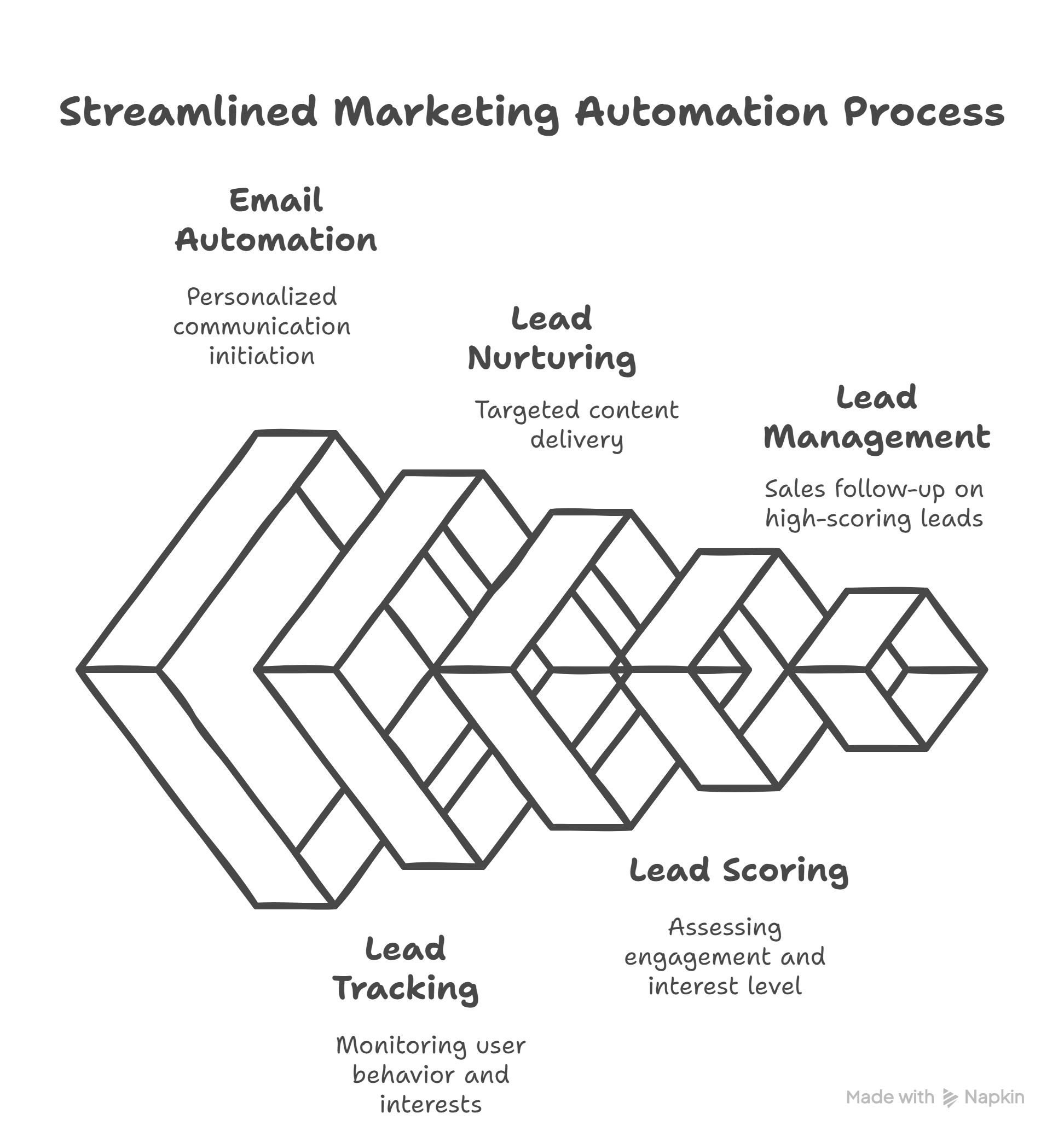Introduction to Marketing Automation (MA)
Marketing Automation refers to the use of specialized software platforms and technologies designed to streamline, automate, and measure repetitive marketing tasks across various online channels. Instead of manually handling every email, social media post, or lead follow-up, MA software helps manage these activities more efficiently.
Core Functions of Marketing Automation Software
MA platforms typically bundle several key functionalities:
- Email Marketing Automation: Sending triggered or scheduled emails based on user behavior (e.g., welcome emails, abandoned cart reminders) or segmentation criteria.
- Lead Nurturing: Building automated communication workflows (often using email or targeted content) to guide potential customers (leads) through the sales funnel, providing relevant information at each stage.
- Lead Scoring: Automatically assigning points to leads based on their demographics, engagement (e.g., website visits, email opens, content downloads), and fit with the ideal customer profile, helping sales teams prioritize follow-up.
- Social Media Posting & Management: Scheduling posts across multiple social media platforms, monitoring mentions, and analyzing social engagement.
- Landing Page & Form Creation: Building dedicated web pages (landing pages) with forms to capture lead information, often linked to specific campaigns or content offers.
- Campaign Management: Organizing, executing, and tracking multi-channel marketing campaigns (e.g., email, social, ads) from a central dashboard.
- Analytics & Reporting: Tracking campaign performance, lead behavior, website interactions, and providing insights into what's working and calculating ROI.
Purpose of Using Marketing Automation
Businesses adopt Marketing Automation primarily to:
- Increase Efficiency: Automating repetitive tasks frees up marketers' time for more strategic work.
- Scale Marketing Efforts: Allows businesses to manage communications and campaigns for a larger audience than would be manually possible.
- Deliver Personalized Experiences: By using data on user behavior and preferences, MA enables sending more relevant and timely messages, improving the customer experience.
- Manage Leads Effectively: Helps capture, track, score, and nurture leads systematically, ensuring potential customers don't fall through the cracks and sales teams focus on the most promising opportunities.
- Improve Measurability: Provides integrated analytics to better understand campaign effectiveness and customer journeys.
Relatable Example:
Imagine signing up for a newsletter on a travel website.
- Without MA: Someone might manually add your email to a list and occasionally send out a generic newsletter blast to everyone.
-
With MA:
- You immediately receive a personalized welcome email (
Email Automation). - If you browse pages about beach destinations, the system notes this (
Tracking). - Over the next few weeks, you automatically receive emails featuring beach travel deals and guides (
Lead Nurturing). - Because you clicked on several beach-related links, your 'interest score' increases (
Lead Scoring). - If the score gets high enough, your contact details might be flagged for a sales agent to follow up with a special offer (
Lead Management).
- You immediately receive a personalized welcome email (
Marketing Automation platforms, such as HubSpot, Pardot, or Marketo, act as a central hub, integrating many digital marketing activities to create a more cohesive and efficient marketing operation.


No Comments